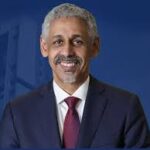The recent developments surrounding the former Governor of Kogi State, Yahaya Bello, have sparked public debate and controversy. After months of back-and-forth between Bello and the Economic and Financial Crimes Commission (EFCC), he voluntarily presented himself to the anti-graft agency on Wednesday. However, in an unexpected turn of events, the EFCC did not interrogate the former governor, allowing him to leave without questioning, according to a statement from his media office.
The incident has left many Nigerians questioning the integrity of the system. Yahaya Bello had been accused of serious financial misconduct, including allegations of money laundering, breach of trust, and the misappropriation of ₦80.2 billion during his time in office. The public expected a thorough investigation into these accusations, particularly given the seriousness of the charges.
The Perception of Selective Justice
The fact that the former governor was not interrogated has fueled perceptions of selective justice. Why would a politician accused of embezzling such a large sum of money be allowed to leave the EFCC office without so much as an interrogation? Many are asking whether Bello’s political connections or influence might have played a role in the treatment he received from the anti-corruption agency. His close ties to powerful figures in Nigeria’s political elite, including the current Governor of Kogi State, Ahmed Usman Ododo, who accompanied him to the EFCC, have led to speculations that his influence may have shielded him from proper scrutiny.
Who Bears Responsibility for Corruption?
This incident has reopened the debate on who is truly responsible for the persistence of corruption in Nigeria. Is it the politicians accused of looting public funds, or the institutions and individuals who enable them to avoid justice? The EFCC, which is mandated to investigate and prosecute financial crimes, is now under the spotlight. Critics argue that the agency’s failure to interrogate Bello, at least during this initial visit, sends the wrong message about accountability in public office.
The Larger Question of Corruption in Governance
The broader issue is not just about Yahaya Bello, but about the culture of impunity that seems to surround many political figures in Nigeria. Several other high-profile politicians have been accused of embezzlement or corruption but have faced minimal consequences. This has raised concerns that Nigeria’s anti-corruption agencies may be compromised, or at least not fully empowered to hold all individuals equally accountable.
Furthermore, the public is left wondering: who is more corrupt? Is it the politicians who abuse their positions to enrich themselves, or the institutions and officials who allow such individuals to evade justice? Some argue that the enablers of corruption — those within the system who fail to act or who deliberately shield powerful figures — are just as guilty as the accused politicians.
Implications for Nigeria’s Anti-Corruption Fight
This episode could have significant implications for Nigeria’s ongoing fight against corruption. It risks further eroding public confidence in the ability of agencies like the EFCC to bring corrupt officials to justice. If a politician accused of misappropriating billions can walk out of the EFCC office without questioning, what does this say about the agency’s resolve to tackle corruption at the highest levels?
The EFCC has not yet commented on why Bello was allowed to leave without interrogation, leaving many Nigerians puzzled and frustrated. As the country grapples with economic challenges, including rising inflation and widespread poverty, the need for transparency and accountability in governance has never been more urgent. But this incident raises a troubling question: can Nigeria’s anti-corruption agencies truly be relied upon to hold powerful figures accountable, or are they part of the problem?









